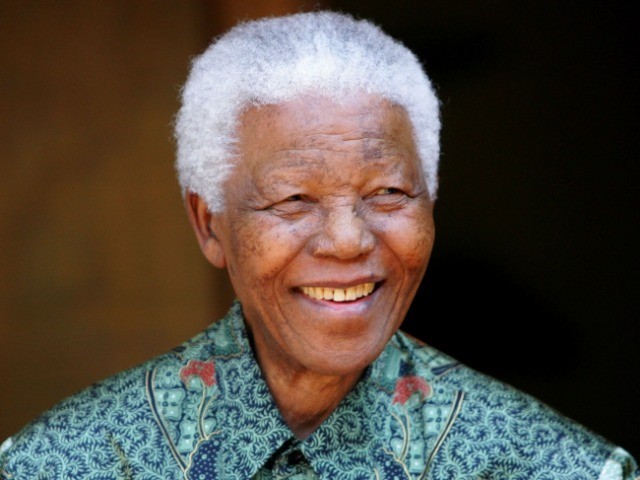With the passing of Nelson Mandela, South Africa’s first democratically-elected president, Americans have tried to understand what he meant for that country, and for the world. While some are drawn to Mandela’s role as a leader in the struggle against apartheid and the peaceful transition to constitutional democracy, others recoil at his socialist ideology and past use of violence, as well as South Africa’s enduring problems. The following are ten key facts about South Africa that provide a balanced perspective on its progress in two decades of democracy.
1. Race relations are dramatically better. Mandela brought South Africa from the brink of civil war to a unity that was once unthinkable. Politicians continue to exploit race, but everyday relations among members of the “Rainbow Nation” are good, though some grievances remain. An entire generation has grown up with no direct experience of apartheid, and against the backdrop of a vibrant cultural cross-pollination. One problem is the position of the formerly dominant Afrikaans-speaking minority, whose language is being pushed aside.
2. The economy is stagnant, despite some progress. South Africa’s economy has grown only moderately since the end of apartheid, when it should have expanded dramatically. The result has been persistent, massive unemployment. The main obstacles to success have been restrictive labor laws passed at the behest of the trade unions, and “black economic empowerment” laws that carve out equity stakes in large companies for neophyte black owners (in practice, members of the ruling party) and therefore scare away foreign direct investment.
3. The country has enjoyed fiscal stability. Mandela resisted immense internal pressure to spend liberally on economic redistribution and opted for a path of fiscal conservatism, with small budget deficits and relatively low inflation. That evoked opposition from the left, which derided “neoliberalism,” but it gave South Africa the potential to succeed. Even Jacob Zuma, who rose to the presidency on a wave of populist resentment against the ruling party elite, did not undo Mandela’s sound macroeconomic precedent–at least, not significantly.
4. HIV/Aids has devastated the population. The end of apartheid coincided with the arrival of HIV/Aids, which Mandela did little to fight–a fact he acknowledged after he left office. His successor, Thabo Mbeki, allowed hundreds of thousands to die while his government pursued a quack theory that the disease was not caused by a virus and could be cured by traditional African remedies. The country has recently done a better job fighting HIV/Aids, but its young adults–its most hopeful and productive cohort–have been utterly decimated.
5. Crime is a major challenge. The chaos of South Africa’s political transition, and the sheer incompetence of a police force that previously had to do little but keep blacks out of white areas, led to a massive crime wave. In turn, that led to an ongoing exodus of skilled professionals. Though there has been some progress in improving public safety, there is a lack of political will to tackle it, especially since official corruption is rampant. Crime is still the country’s most visible problem, and there is no South African whose life has not been affected by it.
6. Inequality is worse–and economic, not racial. The most hopeful social development in South Africa has been the emergence of a black middle class. However, the country is now divided between a multiracial, consumerist elite on the one hand, and a restive black underclass on the other. Affirmative action policies have helped some blacks advance but have harmed many others indirectly, as qualified white and mixed-race South Africans have been pushed out of the public services, upon which poor blacks depend disproportionately.
7. Government services have declined. Mandela’s government took pride in expanding access to water and electricity. Yet these tasks were easily outsourced. In other areas, such as housing and education, the new government has often violated the “socioeconomic rights” enshrined in its new constitution. In opposition-governed areas such as Cape Town and the Western Cape province, the government has been more successful by retaining qualified personnel, fighting corruption and delivering housing grants directly to communities.
8. There are major political and human rights problems. The ruling party remains so strong that it threatens South Africa’s constitutional future, stacking the courts and turning parliament into a rubber stamp. It has also tried to suppress the media through new secrecy laws. The opposition is growing, but remains weak and regionally based. Meanwhile, the police are once again using live gunfire to put down demonstrations, as in the apartheid era, and black South Africans recently went on a violent rampage against African immigrants.
9. South Africa is, once again, a foreign policy pariah. The apartheid regime once had few friends aside from the most isolated nations. The new government exchanged one set of pariah states for another. South Africa coddled the Zimbabwean regime and maintains good relations with Castro’s Cuba, among others. It has even tried to engage with North Korea. Mandela tried, and failed, to play a peacemaking role in Africa. Today, South African troops are heavily involved in regional peacekeeping but are a badly downgraded force.
10. The country often rises to great challenges. For all of the country’s problems, South Africans tend to pull together when it counts. The successful 2010 World Cup, for example, stands out as evidence of what the country can do, against the odds. The country seems to be on a downward trajectory, with demands for even more of the socialist policies that have held it back. Yet as a new, post-struggle generation raises its voice, as the middle class grows and as the political opposition strengthens, there may yet be hope for the country’s future.
This post has been updated.

COMMENTS
Please let us know if you're having issues with commenting.